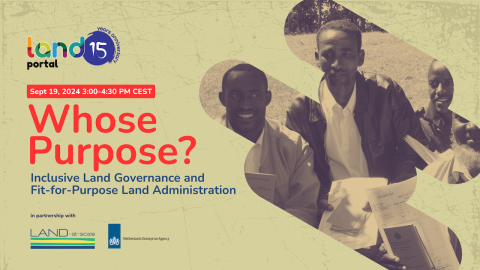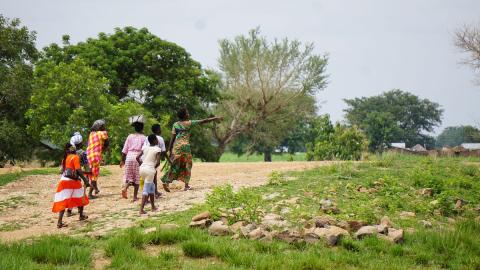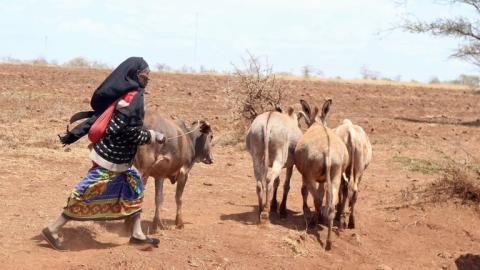Discover hidden stories and unheard voices on land governance issues from around the world. This is where the Land Portal community shares activities, experiences, challenges and successes.
 Follow our
Follow our
Sustainable Development Goals
Blog Series!
Interested in land corruption?
Follow our Land & Corruption Blog Series
for in-depth perspectives from the experts.
Issues
Geographical focus
Building innovative methodologies to overcome conflict and tension requires to go and work there where it is hardest. ProPFR Côte d’Ivoire (Promotion d’une Politique Foncière Rurale – Global Programme for Responsible Land Policy) tested approaches in Cavally region to help overcome significant opposition to change.
Ethiopia's land administration sector has undergone significant improvements over the last decade. With approximately 50 million parcels of land, around 30 million have been demarcated and registered, and 25 million parcels have received Second Level Landholding Certificates (SLLC) digitized in the National Rural Land Administration Information System (NRLAIS). Despite these advancements, most rural landholders continue to rely on informal land transactions after initial registration, primarily due to the distance between kebeles (sub-district) and woreda (district) land offices.
Observers marked 2023 as a “make-or-break” year for voluntary carbon markets and a key “inflection point” for their role in addressing climate change and global deforestation. Proponents highlight that forest carbon projects channel much-needed funds towards forest protection and are pivotal to climate change mitigation. However, critics emphasize that carbon deals set incentives for over-crediting. Moreover, carbon offsetting allows the biggest emitters to simply outsource their climate mitigation efforts with potentially adverse impacts for affected communities.
After five failed rainy seasons and the worst drought in 40 years, communities in Northern Kenya – mainly pastoralists – are negotiating with carbon project developers to save forests, wetlands and rangelands, and their livelihoods.
Photo: Youth in Rwanda engage in a Q & A session (Creative Commons Attribution)
Photo: UN Women (Creative Commons Attribution)
The webinar Inclusive Land Governance and Fit-for-Purpose Land Administration: Whose Purpose?, which took place on 19 September, 2024, explored how a people-centered and holistic approach can transform Fit-for-Purpose Land Administration (FFPLA) and ensure that land administration truly serves the needs of communities. The webinar, which was moderated by Imke Greven of the LAND-at-Scale Program Advisor at the Netherlands Enterprise Agency (RVO) gathered over 275 people.
On September 23, 2024, a powerful hybrid event titled "From Commitment to Action: Enabling Direct Funding for Indigenous Peoples in Multilateral Climate and Biodiversity Initiatives" was hosted at the Ford Foundation headquarters in New York City as part of Climate Week.
Photo: Kandukuru Nagarjun, via Flickr, CC BY 2.0
The recent series of ALIGN articles shed light on how civil society, impacted communities and rights defenders across the world have used strategies such as legal action, publishing of mining contracts and stakeholder dialogues to change approaches to land-based investment governance.
The Land Portal Foundation, in partnership with Transparency International, hosted the webinar titled "Breaking New Ground: Insights and Stories on the Impact of Land Corruption on Discriminated Groups in Africa." The webinar brought together a panel of distinguished experts to delve into the challenges and complexities of corruption intertwined with discrimination in land rights and governance. This session provided crucial insights through detailed case studies and expert analyses, offering pathways towards more equitable land management practices.






.jpg?itok=4A4n-39m)





